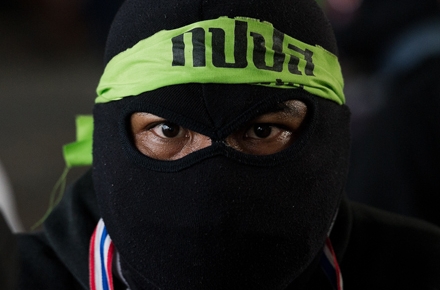Polls and protests: Thailand’s political problems set to continue
Thailand’s political turmoil is set to continue, despite the country going to the polls yesterday, says a leading ANU expert.
Speaking to ABC’s Radio Australia, Professor Andrew Walker from the ANU College of Asia and the Pacific said that it is clear that the election has not solved the current impasse.
Thailand has been hamstrung by weeks of political unrest, street protests and even deaths, as members of the opposition Democrats party have called for Prime Minister Yingluck Shinawatra to stand down.
“It's clear that this election is not going to resolve things. Unsurprisingly, the government has won, but we always knew that, because the Democrats weren't willing to run. I think this has got a long way to play out,” said Walker.
“It's going to take some weeks for even the election result to be clear and perhaps by-elections to held in areas where the election couldn't be held.
“Even then, I think the election result will be subject to a whole series of legal challenges as the opposition movement throws everything they can at to try to discredit this process.”
Walker was quick add that the elections weren’t a waste of time, and Yingluck Shinawatra and her government could take heart from voter turnout and lack of violence.
“I think from the government's point of view, having called the election in early December, it was very important for the government's credibility that they proceed down that path.
“And to give Yingluck her due, she has managed to conduct the election by and large across the country, in a relatively peaceful and orderly manner.
“We certainly saw significant problems in Bangkok with that very alarming shooting incident the day before the election. But Yingluck will take some satisfaction from the fact that the elections have gone ahead.”
And while tensions are still high, Walker thinks that the peace will hold for the meantime – particularly since the Thai military has made it clear that they are not willing to intervene.
“They learnt a pretty painful lesson from the coup against Thaksin in 2006 that effectively achieved nothing for them.
“And if the military were to intervene this time, I think they'd likely see a fairly violent backlash from the pro-Thaksin forces.
“So with the military reluctant to intervene, I think ultimately this is going to play its way out in the courts, with the Opposition trying to maintain some pressure on the streets of Bangkok, but also to explore a series of options within the courts to try to displace the Yingluck government.”
Listen to Professor Walker’s full interview at the ABC Radio Australia website.







